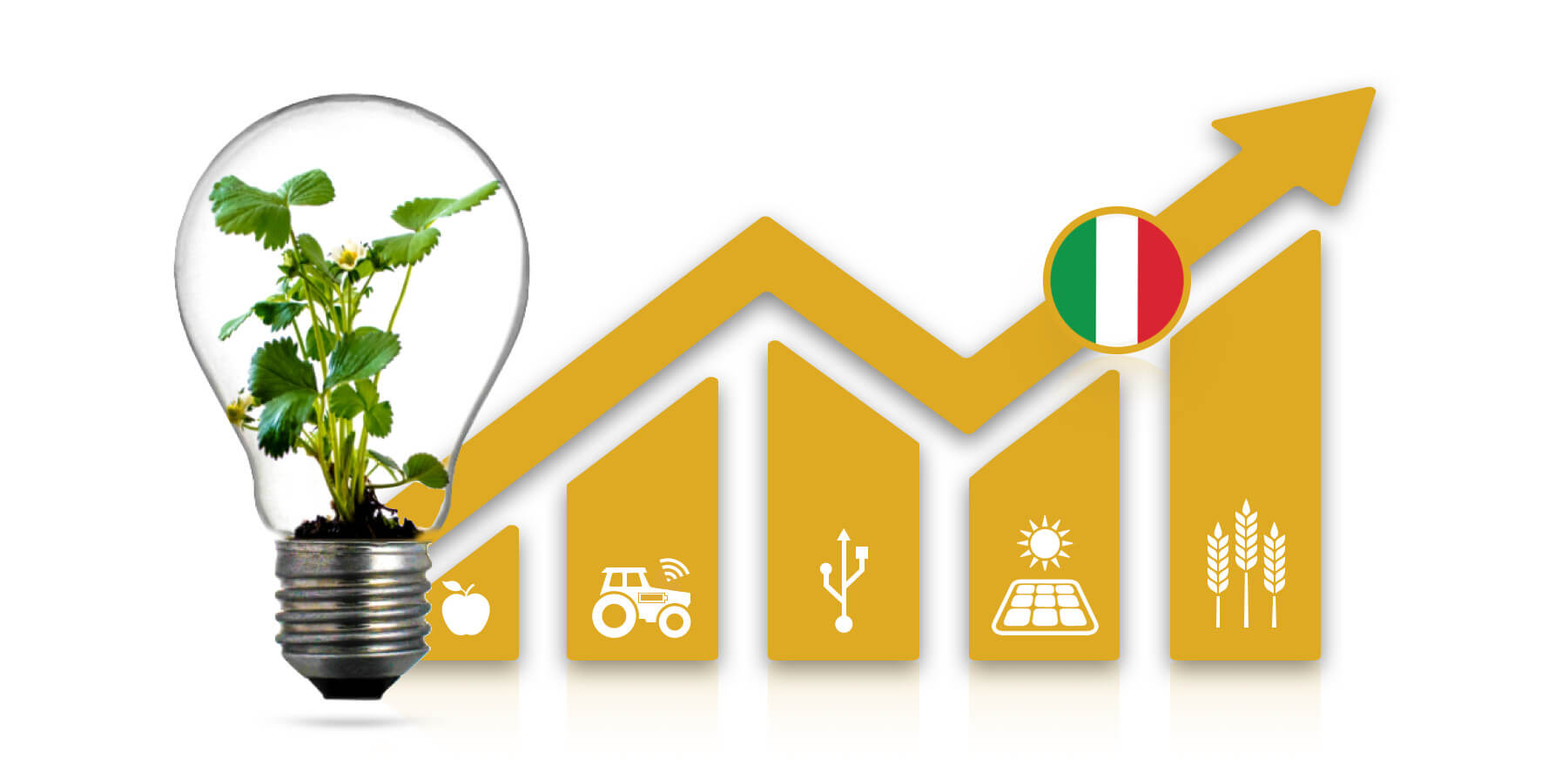Increasing DEMAND for Food
The demands on the world’s Agriculture and Food systems will increase dramatically in the coming decades due to population growth (+30% by 2030) and improved living standards. For the world’s leading agrifood nations this represents a big growth opportunity, but also an important responsibility. This is a great growth opportunity for the leading nations in this sector, but at the same time a great responsibility to manage.
Increasing PRESSURE for Sustainability, Circularity and Biodiversity
The environmental impact of Agriculture & Food is immense:
- 26% of greenhouse gases,
- 70% of freshwater use,
- 50% of land use,
- 78% of water pollution.
Reducing that impact while significantly increasing food production.. that is the big dilemma of our times.
Nature itself is reminding us of the urgency to come up with new solutions: extreme weather conditions – like storms, floods, hail, frost, temperature increase and drought – are destroying crops, changing the natural growth cycles of plants and animals, facilitating the spread of diseases (e.g. xylella) and turning arable land into deserts.
Italy = Nation of Food EXCELLENCE
Italy is one of the countries positioned to play a significant role in the necessary transformation, both due to size and unique characteristics:
- Italy is Europe’s third largest agricultural country,
- Italy is Europe’s biggest producer of many kinds of fruits and vegetables, rice and durum wheat,
- Italy’s biodiversity is very high compared to the country’s size,
- Italy has Europe’s biggest farmers association (1.5 million members),
- Italy’s food industry produces the highest value added in Europe,
- Italy’s share of organic agriculture is well above EU average.
But Italy, as many countries, especially in the south of Europe, is already impacted by climate change, posing a serious threat to production levels and self-sufficiency. Therefore, Innovation has become a necessary strategy, not just an interesting export opportunity..
Italy’s Agrifood Innovation CHALLENGE
Innovation increasingly depends on technology, automation and digitalization which have not yet found a massive use in Italian agriculture. Probably, there is a need for knowledge about the opportunities, specific skills and concrete solutions, services and business models to accelerate transformation of the entire food value chain.
The transition is slowed down by a high level of fragmentation: most producers and growers are small family farms and many food producers and distribution channels are local/regional. This makes it very difficult to plan and adapt production, avoid overproduction/waste and allocate the financial resources to guarantee the necessary investments.
Considering the strategic importance of the agrifood industry, public funds (national and European) are being allocated and they can be combined with private financing solutions to support investments in new activities or transformation of existing ones (non-repayable or subsidized loans, direct participation in corporate capital, etc).
So the real challenge now is to define new projects and sustainable business plans that can convince investors, create complementary partnerships in the value chain from producer to consumer and to coordinate large-scale projects.
How to guide this transition and guarantee that the investments will produce tangible results?
A possible RECIPE?
I think the agrifood industry must replicate the transformation process successfully managed in many other industries: all new projects should be launched with the participation of as many complementary partners as possibile, so that both the quality of products/processes as well as the economic return (production costs, sales prices) are guaranteed.
This means involving not just farmers and food industry, but also distributors and suppliers of energy and electrification, raw materials, machinery, new digital and data technologies.
The agrifood industry is very complex – it might have even more variables than the aerospace industry! – considering its direct impact on health and quality of life, environmental protection and sustainability and regional food self-sufficiency. This last aspect becomes especially critical in times of economic crisis or unexpected health emergencies as we see in these very days.
Tradition and experience are no longer enough, it is necessary to get supported by advanced technology – including artificial intelligence.
In addition to producing quality it is necessary to “document” quality and protect the value of “made-in-italy” food products. How could this be possibile without introducing impartial monitoring and traceability tools made possible by the new technologies?
Last, but not least, investing in new skills and technology is necessary to attract the young generations and create lots of new jobsall over the country.
I hope you agree on the big opportunities in front of us.
If you are interested in developing sustainable projects attractive for investors in the new green economy let me know – maybe we can collaborate.


